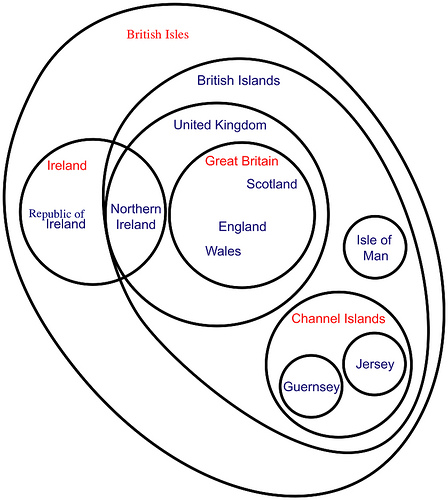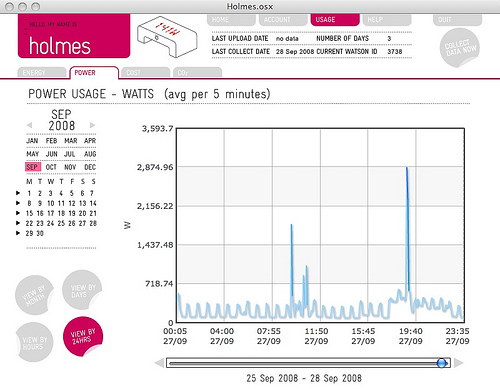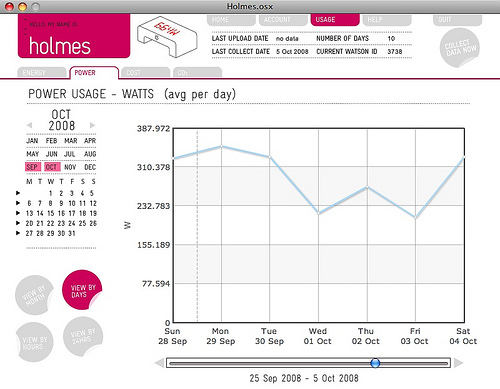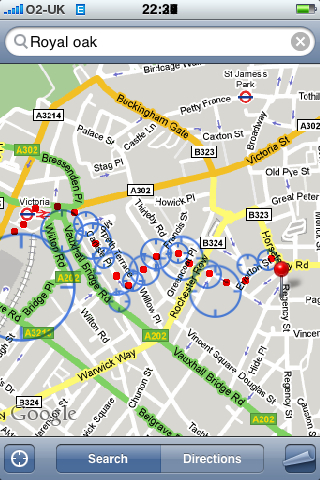
I was looking for this the other week to sort out some terminology. And, of course, someone had it set out on Wikipedia.

I was looking for this the other week to sort out some terminology. And, of course, someone had it set out on Wikipedia.
Is there anything more pleasing that a lovely graph? Probably… but anyway it’s good to know that The Economist churns them out with some regularity. I’m currently a bit partial to this one (which I’m calling “The Ballerina”, but that distracts from it really):

Taken from “How the race was won“. You can see more of these over at The Economist Daily Chart page.
For a long time I used Quicken for personal finance stuff, and eventually for freelancing too. It did the job quite nicely for a while, but I hit a few blocks with it: the upgrades promised more than they delivered; the data format was so stupid it was effectively impossible to move to different software; and then they dropped support for the UK. When I moved to the Mac I discovered the Mac version was just terrible, so for a while it was the only Windows app I was stuck with. This was all some years ago.
The solution we ended up with is Moneydance. I’ve been using it now for at least a couple of years, and it’s worked out really well as a personal finance replacement for Quicken. It runs on the Mac, Windows, and Linux so no problems moving between operating systems. It’s sane. It works.
It’s weakness was in invoicing, and for that reason, I’ve never used it for business. It does VAT, it does produce reports, so you can use it for business, but I wanted a more complete package for business, so I’ve settled (again, for some years) on using MYOB. I find it a bit of odd in places but I think that’s more to do with accountancy than software. Unfortunately, I’m uncertain what’s happening with MYOB right now: looks like they’ve been moved to someone called Mamut, and I don’t know what the plans are there.
So whilst I can’t really suggest you look at MYOB (in the future I’ll be looking to move to something more on-line, I suspect), Moneydance has been an absolute star.

As I write this, there’s a cup of tea to the right of my keyboard. I have a reasonable idea of how much energy it took to make the tea. When I turned the kettle on, the display on Wattson scrolled up from a resting rate for the house of around 98W to over 2000W. To see those numbers first-hand, and control the numbers with a flip of a switch, is a small awakening. I suspect it’s common practice when anyone buys an energy measuring device to run around the house turning things on to see what the effect is; and then turn off as much as possible to find the smallest reading possible.
Back to the tea. These days, having had Wattson for a few months, I put a little more care into getting something like the right amount of water in the kettle. But I wonder: now that the novelty of Wattson has worn off, will my behaviour change for the long term? I’d like to know and keep it in check, and Wattson should help.
There’s a USB slot on Wattson, and DIY Kyoto supply software, called Holmes, to read the data from the device to show you your usage. The software tries to be funky, but it actually feels like a throwback to me… but it works. OK, well, ours didn’t at first, but DIYKyoto were brilliant and fixed the box for us, and we can now pull data from it.


Smashing, eh?
Well…there’s a problem with all of this. The data—or “my data” as I like to think of it—is locked up in an encrypted proprietary database. I’d love to be able to tell you Wattson is a great device, but the trouble that’s been gone through to make the data (“my data”) hard to get at niggles me. Sure, if you work at it (about 60-90 minutes) you can decrypt the data, but that’s not really playing the game. And it’s probably against the license agreement, although I can’t find it at the moment to check. There’s talk at the DIY Kyoto web site of adding an export function before the end of the 2008 (or February 2008, depending on which message you read).
Anyway: I’ll keep an eye on the graphs, and see what happens, but the data needs to be open, even if it’s via an API. In fact, DIY Kyoto have hinted at online access, and that’d be a good step. Ideally, there needs to be a direct link from Wattson to the web for a little bit of competitive energy comparison fun. Maybe one day.
Related…

I was catching up with Ash the other day, and on the way back to the station I used the maps application on my phone to find my way. What I hadn’t realized up to that point was that the map automatically updated to show me my position (this is an old phone, mind you, not the one with GPS built in). So as I navigated, I took screen shots each time the map updated and the above is the merging of the screen shots. Blue circles are where the phone thinks I am; red dots show the route I actually took.
I’ve used this since to find my way around bits of London I don’t really know that well, and it’s worked nicely for me. The downside is that you need your phone out and on, which does mean a mugging can’t be far away.
For Euro 2008 I tracked the odds of any of the teams winning over time. It makes a kind of fun graph:
The y-axis shows the odds (screen scraped from a betting web site… not doing that again), converted into a probability, and multiplied by 16. Why multiplied? To give a kind of “value” to each team: if you’d purchased a team for £1 in a sweepstake, then you can plot a kind of value for it over time by multiplying the odds of winning by the size of the pot (£16). Kind of.



In 2006 we visited Bletchly Park, and I really recommend you head out there sometime. In fact, go soon, because we found out at the Cafe Sci talk that they have three years left of funding. Then… it’s gone.
Yesterday I received a press release which contained some worrying images of building decay. But there’s something you can do…
It’s festival time, and although we’re not doing much in the Brighton Festival itself, we have a punishing schedule in the Brighton Festival Fringe—which, I’m told, is the “England’s largest arts event, and the 2008 Fringe is the second largest Fringe Festival in the world”. Citation needed, indeed.
So far we’ve been to…
One negative: the £1 per ticket booking fees are evil, especially as the booking system isn’t finished and the web sites are frustrating to use. And on top of that “internet booking fees” should be made illegal. But, there’s no competition, so we pay. I’d rather have to pay than not have it at all, is what it comes down to.
Transcripts from the Old Bailey (from 1674 to 1913) are now online, which has generated plenty of press.
As I suspect many others have, I went searching for references to my family name and I’ve found a few…
It’s worth having a dig around the site for some of the history to the publication. For example, the Proceedings were popular (“…in the opinion of many people one of the most diverting things a man can read in London”) until the rise of newspapers, and even carried advertising for a while.
One to file under “wish I’d thought of that”, from Slashdot:
Under [the] radically transparent ‘open notebook’ approach, everything goes online: experimental protocols, successful outcomes, failed attempts, even discussions of papers being prepared for publication… The time stamps on every entry not only establish priority but allow anyone to track the contributions of every person, even in a large collaboration.